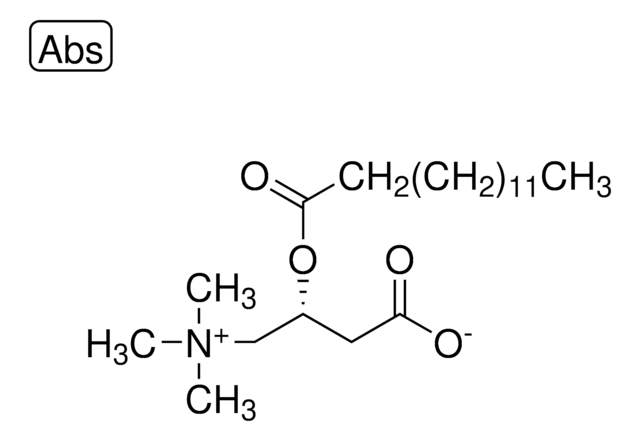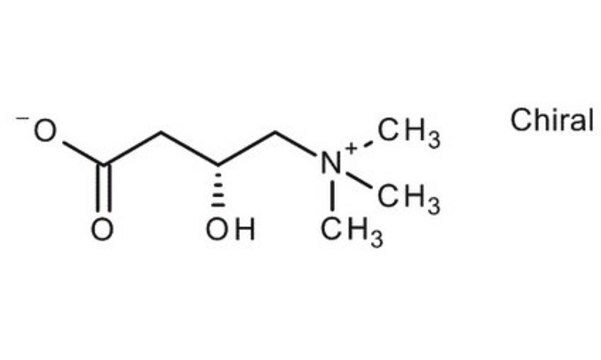91503
Palmitoyl-L-carnitine
analytical standard
Synonyme(s) :
(2R)-3-Carboxy-N,N,N-trimethyl-2-[(1-oxohexadecyl)oxy]-1-propanaminium inner salt, L-Carnitine hexadecanoyl ester, C16-Carnitine, Hexadecanoyl-L-carnitine
About This Item
Produits recommandés
Qualité
analytical standard
Niveau de qualité
Pureté
≥95.0% (HPLC)
Activité optique
[α]/D -17.0±2.0°, c = 1 in methanol
Durée de conservation
limited shelf life, expiry date on the label
Impuretés
≤10% water
Application(s)
clinical testing
Format
neat
Température de stockage
2-8°C
Chaîne SMILES
C[N+](C)(C)C[C@H](OC(CCCCCCCCCCCCCCC)=O)CC([O-])=O
InChI
1S/C23H45NO4/c1-5-6-7-8-9-10-11-12-13-14-15-16-17-18-23(27)28-21(19-22(25)26)20-24(2,3)4/h21H,5-20H2,1-4H3/t21-/m1/s1
Clé InChI
XOMRRQXKHMYMOC-OAQYLSRUSA-N
Vous recherchez des produits similaires ? Visite Guide de comparaison des produits
Catégories apparentées
Description générale
Application
Produits recommandés
Code de la classe de stockage
11 - Combustible Solids
Classe de danger pour l'eau (WGK)
WGK 3
Point d'éclair (°F)
Not applicable
Point d'éclair (°C)
Not applicable
Faites votre choix parmi les versions les plus récentes :
Déjà en possession de ce produit ?
Retrouvez la documentation relative aux produits que vous avez récemment achetés dans la Bibliothèque de documents.
Les clients ont également consulté
Notre équipe de scientifiques dispose d'une expérience dans tous les secteurs de la recherche, notamment en sciences de la vie, science des matériaux, synthèse chimique, chromatographie, analyse et dans de nombreux autres domaines..
Contacter notre Service technique













